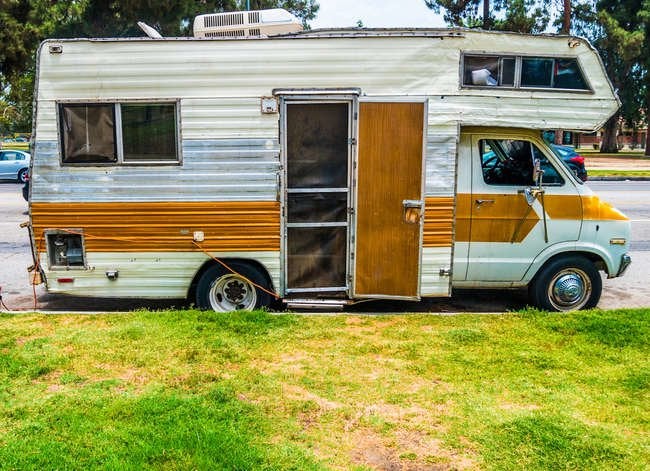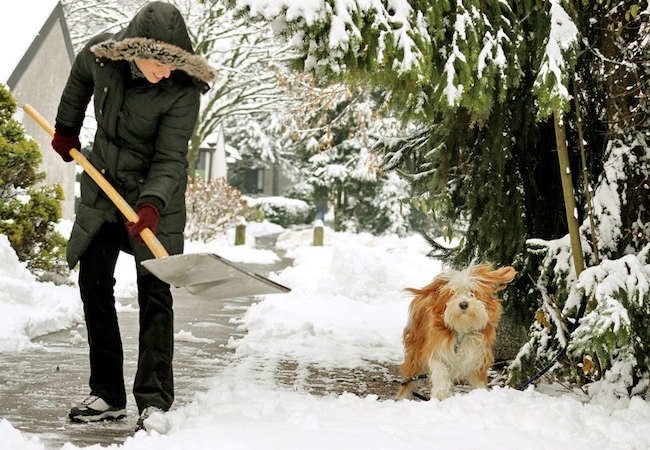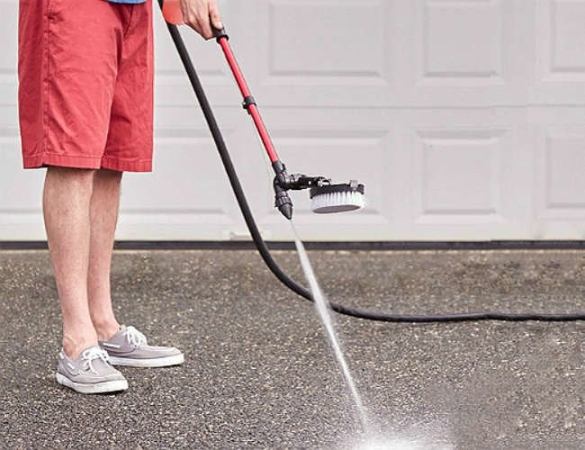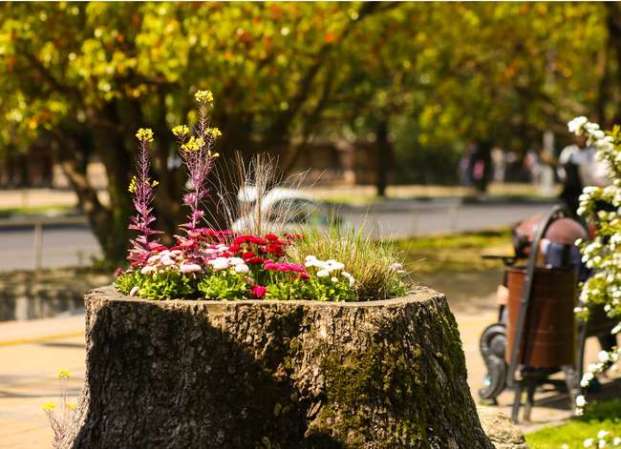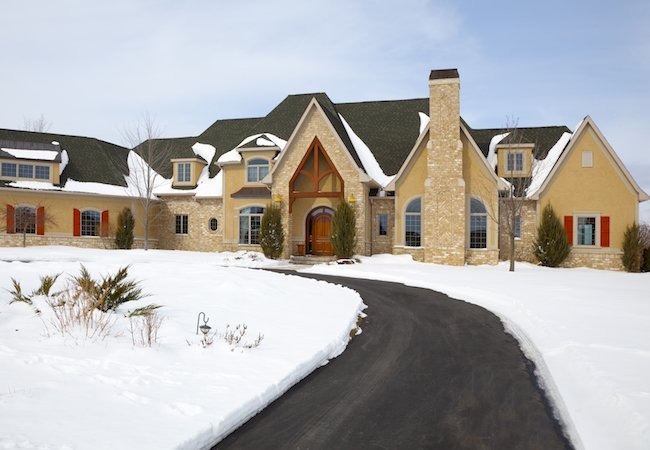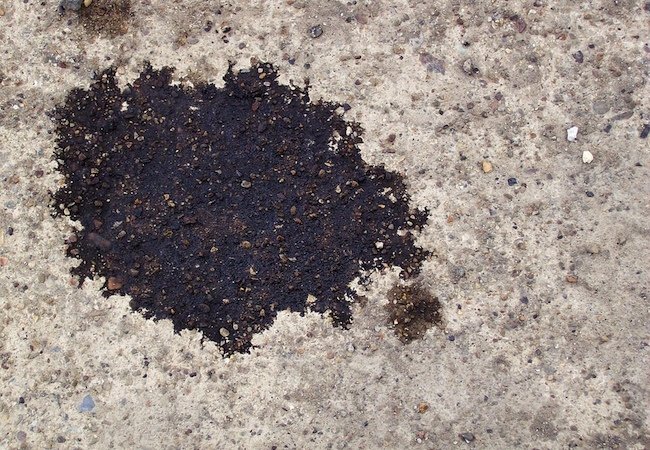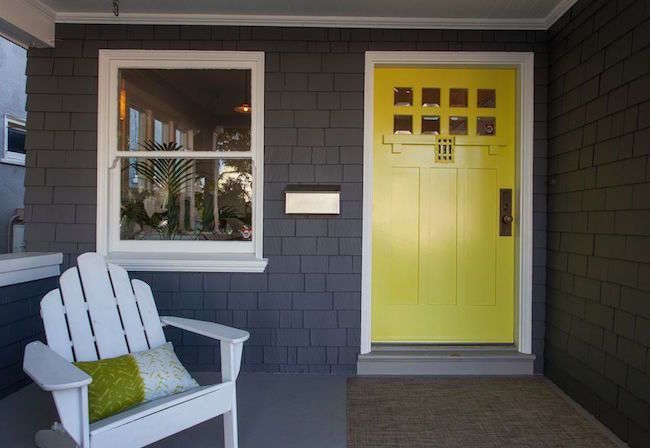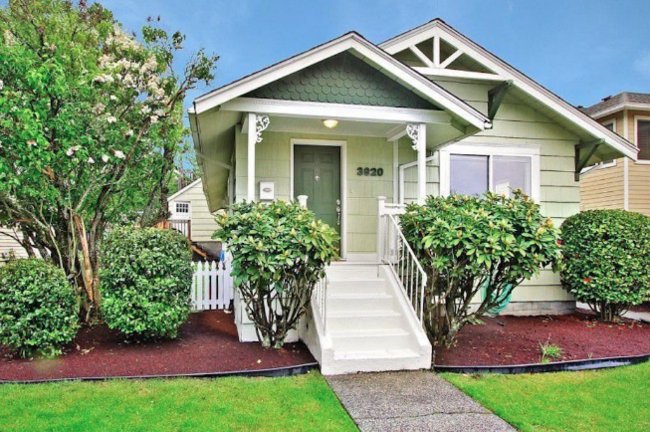We may earn revenue from the products available on this page and participate in affiliate programs. Learn More ›
Letting Your Dog Run Free

Most communities have leash laws that require you to keep your dog on a leash when outdoors, unless it’s in a securely fenced area. If your pooch gets out and starts visiting other houses, one of your neighbors may call animal control, which will then pick up your dog and transport it to a holding facility. Getting your dog back may require paying a fine of $100 or more.
Noise Nuisance

We’re not talking about mowing your lawn early on a Saturday morning (although your neighbors are unlikely to appreciate that). We’re talking about hosting raucous parties late at night or using loud power tools like chainsaws after dark. Noise ordinances vary by community and usually involve a set curfew—for instance, 9 p.m.—after which you’re not supposed to make loud noises. If an officer is called to your home, you could be fined as much as $250 for a first violation and double that amount for a second offense.
Related: 12 Things You Don’t Realize Are Annoying Your Neighbors
Overgrown Lawn
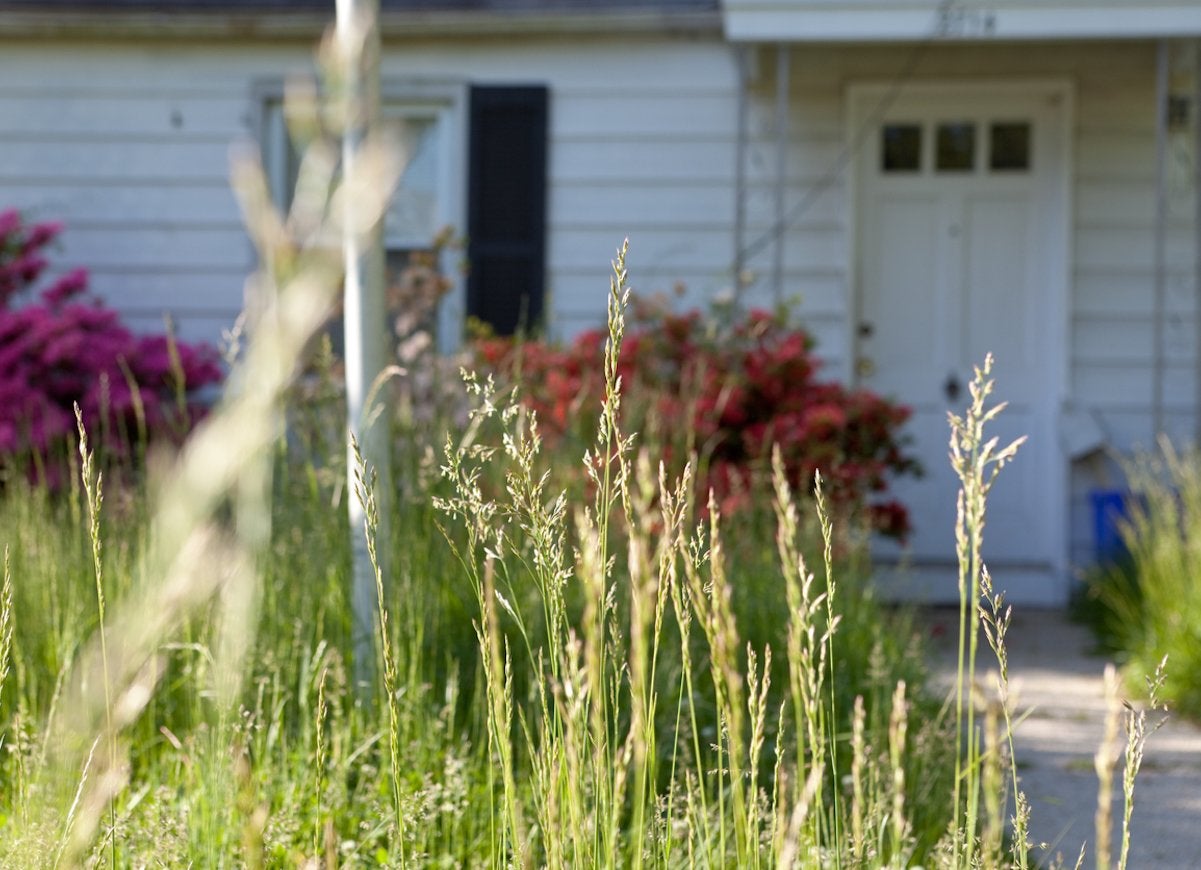
Expect to receive a warning letter from your community’s residential enforcement authority if your grass is higher than your ankles when you stroll about your yard. Most communities have ordinances stipulating how high your grass can get before you’re in violation; the length is usually between 8 and 12 inches. Once you’ve received a warning, you’ll have to cut the grass, or the city will cut it and send you the bill for the service. You may also need to pay a fine if it happens more than once during the growing season.
Related: Goodbye Grass: 13 Inspiring Ideas for a “No Mow” Backyard
Inoperable Vehicle

If your old rusty pickup quit running a few months ago and is now just taking up space in your driveway or on the street, expect a neighbor to report it. Most communities consider inoperable vehicles to be neighborhood blights. You may be able to store the vehicle in your backyard if it can’t be seen from the street, or you may be required to haul it away. If you don’t comply, the city may send a tow truck to transport your vehicle to an impound yard. You’ll then be charged for the towing cost along with daily fees while your vehicle is impounded.
Blocking View of Traffic
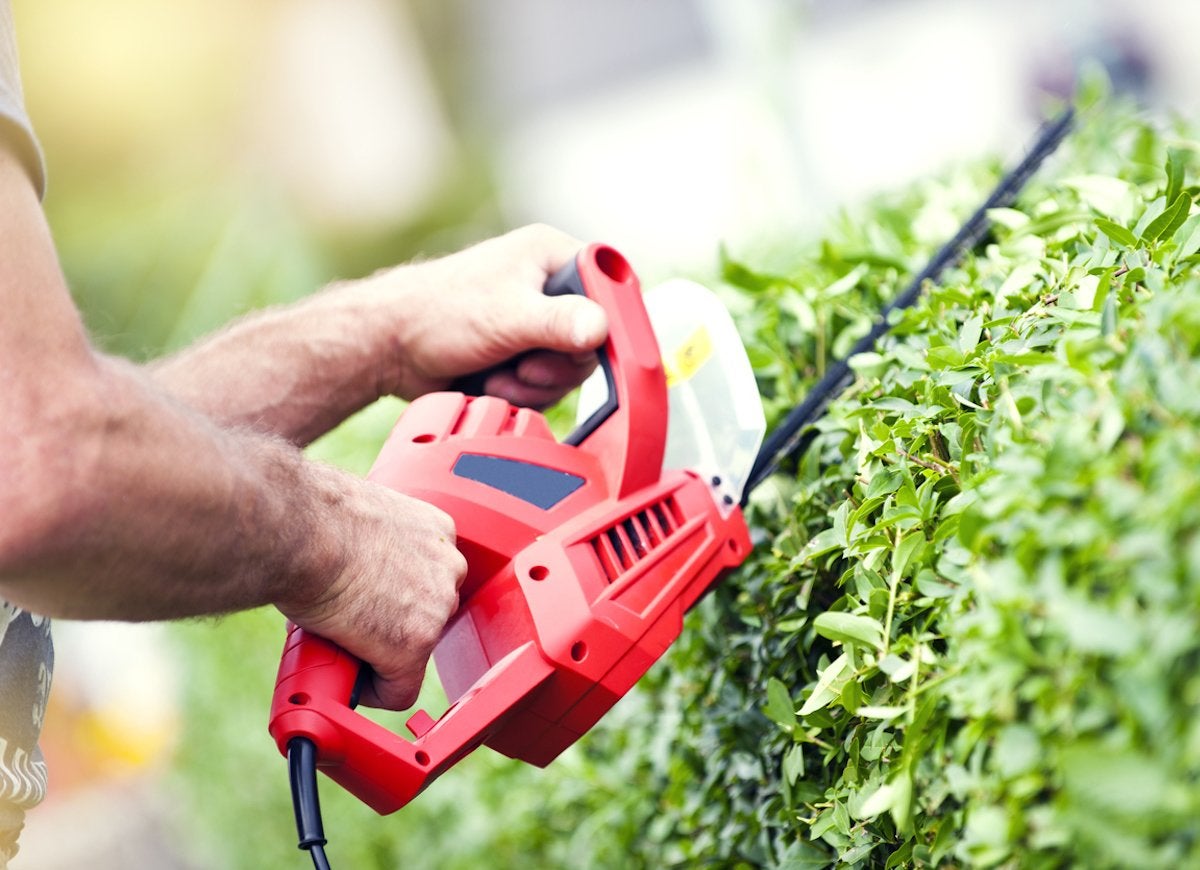
If you live on a corner and your bushes and hedges are so overgrown that motorists cannot see cars coming down the cross street, don’t be surprised if someone reports you. You may be ordered to trim your bushes to a safe height. Additionally, if an accident occurs and your hedges are found to have been blocking the view of traffic, you may face a lawsuit for damages. Your best best? Keep curbside plantings neatly trimmed.
Frequent Rummage Sales
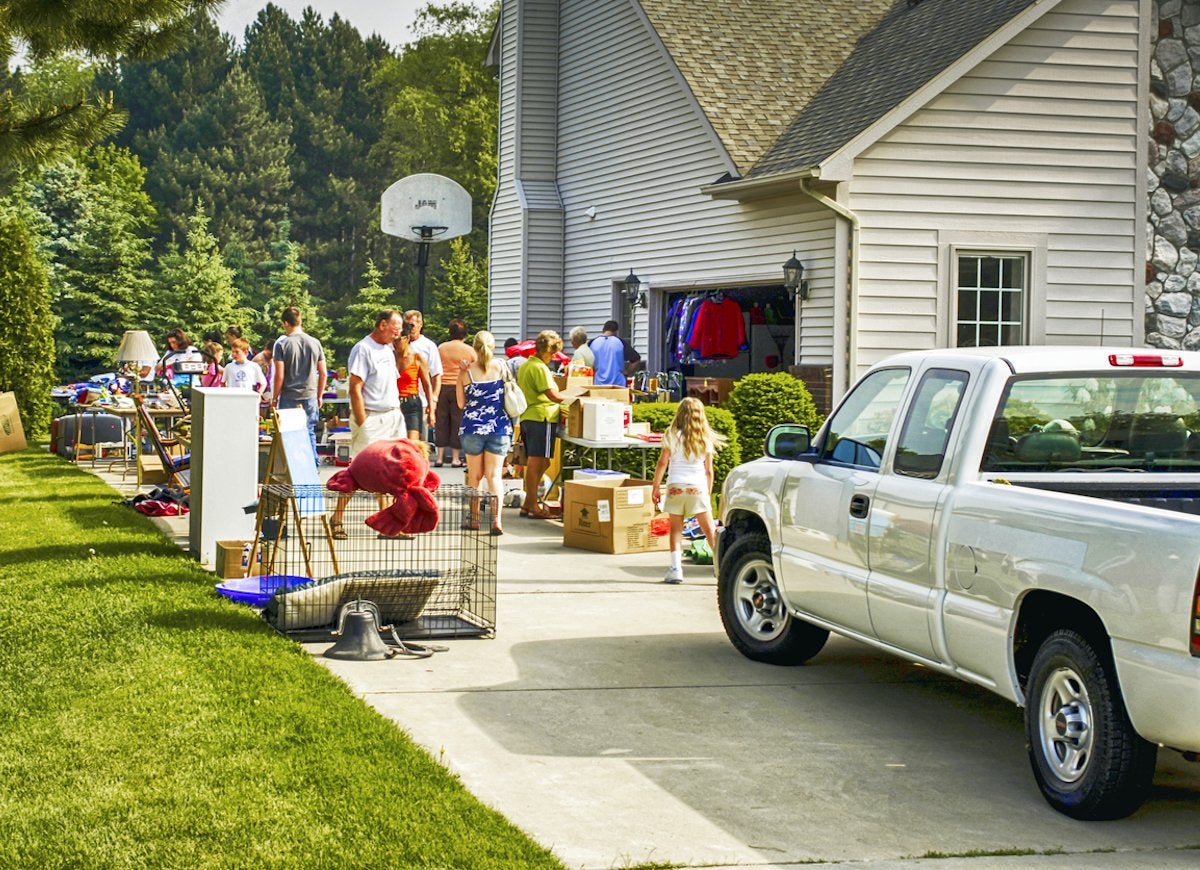
Holding a rummage sale to get rid of the stuff you no longer want is a time-honored tradition. But many communities limit residents to holding no more than one or two sales per year. They’re disruptive and they increase street traffic, and your neighbors may get tired of seeing all your possessions strewn about your yard and driveway.If you make it a practice to host a sale every weekend, you should eventually expect a neighbor to report you.
Parking Violations

Believe it or not, sometimes just parking in your own driveway can get you in trouble. This is the case in many neighborhoods with homeowners associations (HOAs). If your car is parked so that sidewalk pedestrians have to walk around it, you could receive a warning from the HOA. Similarly, you may be restricted from parking a boat or RV in the driveway or in front of your house. To avoid a fine, park recreational vehicles at a storage facility.
Related: The 50 Strangest Laws in America
Tree Danger
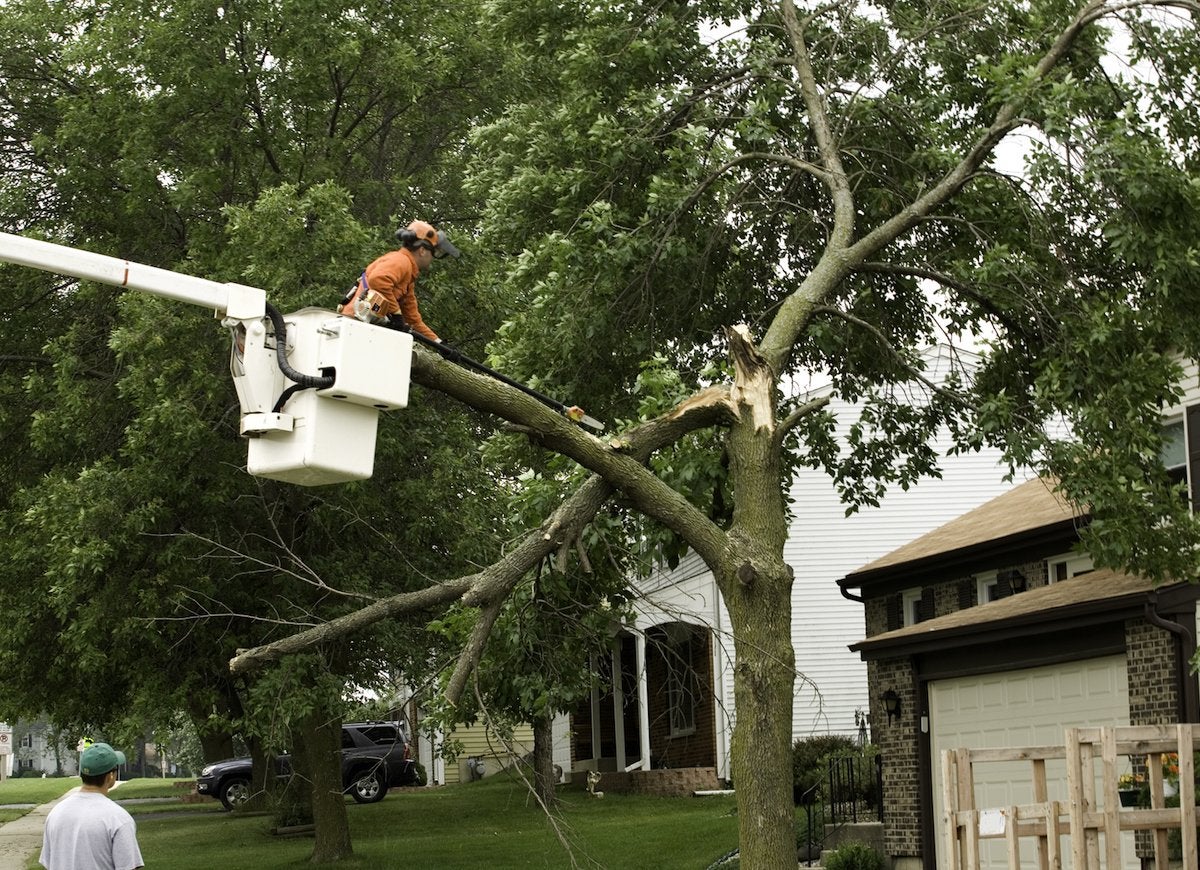
If broken limbs or dead trees present a danger of falling and injuring pedestrians or damaging cars, there’s a good chance a neighbor will report the tree. Many communities have tree ordinances that regulate where trees can be planted and how they must be maintained. In many municipalities, the city will notify you if they need to prune or remove a potentially hazardous tree, and depending on where you live, they may do the work free of charge.
Leaving Snow on the Sidewalk
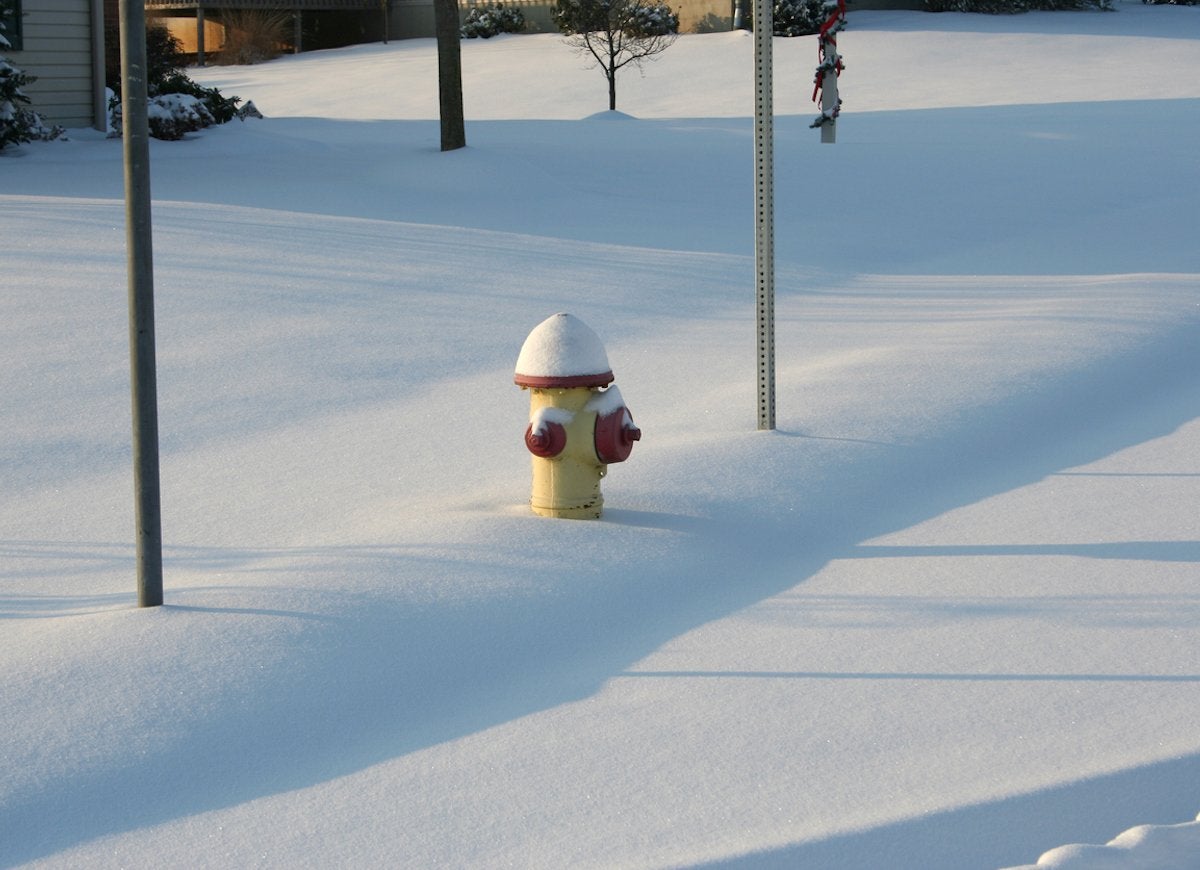
While the sidewalk in front of your house is considered public access, you are expected to maintain it in a safe manner. If you don’t promptly shovel away the snow that accumulates on your sidewalk, pedestrian traffic will pack it down, making it slippery and dangerous. Check with your local authority on the rules for keeping sidewalks free from snow. In some localities, if you don’t shovel within a specified time after the snow stops falling, a neighbor can report you, and you could receive a warning or fine.
Illegal Signs
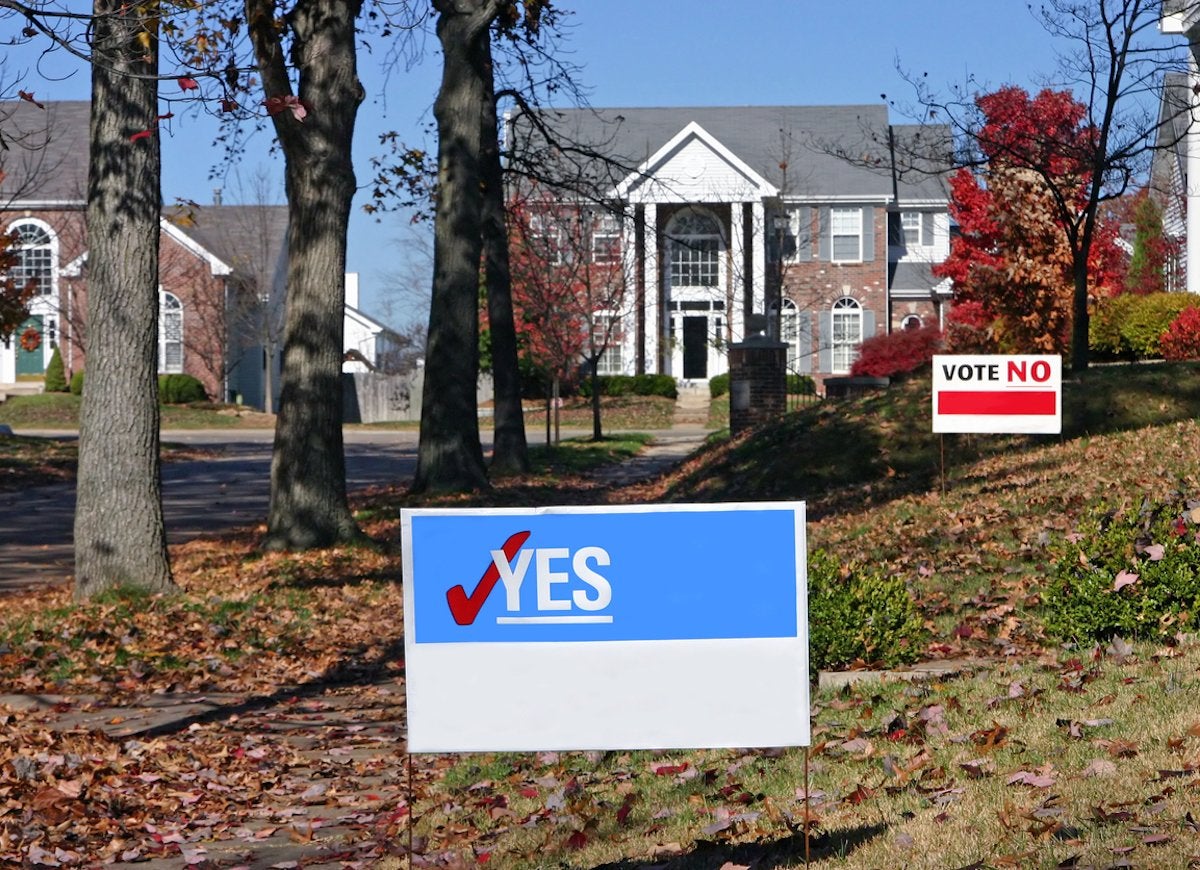
The type of sign you can post in your yard, and where you can post it, may be regulated by both city ordinances and HOA rules. Many communities do not allow posting yard sale signs, campaign signs, or home business signs within three to five feet of the curb. You may also be restricted from posting signs on telephone poles and light poles. Signs too near the street are considered safety hazards, and you may be fined if your neighbors report you.
No Visible House Number
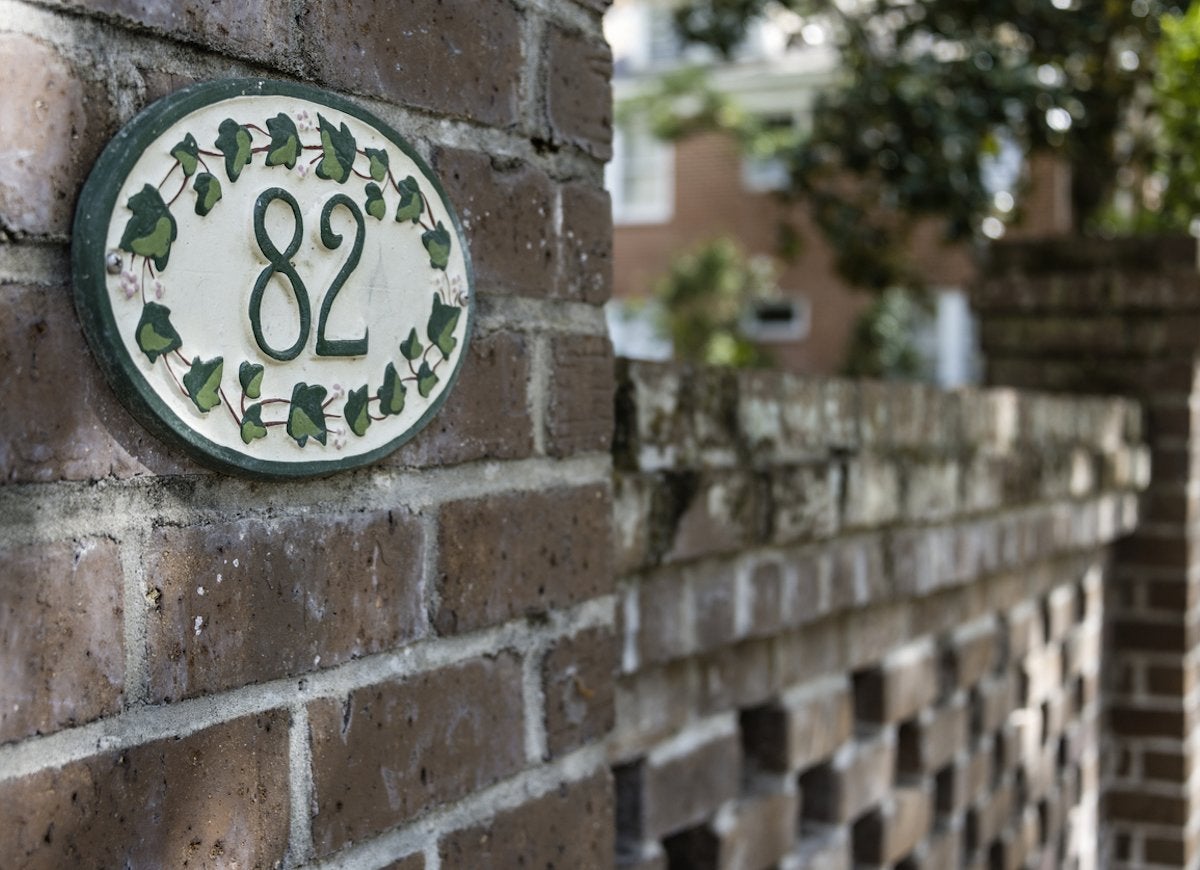
A neighbor may not report you for this infraction, but if a city employee, a law enforcement officer, or an emergency services driver tries to find your house and you do not have a visible house number, you could receive a fine. Rules differ from community to community. In some municipalities, you can call to have your house number painted (or repainted) on the curb.
Altering Drainage Paths

Installing a simple retaining wall or raised bed could interfere with the natural drainage pattern in your yard and divert water in unexpected directions. If this results in water pooling in a neighbor’s yard, you may have to answer to the local building authorities. The best way to keep from being reported and potentially having to make expensive changes is to obtain a permit before building or altering anything that might disrupt the flow of water.
Illegal Burning
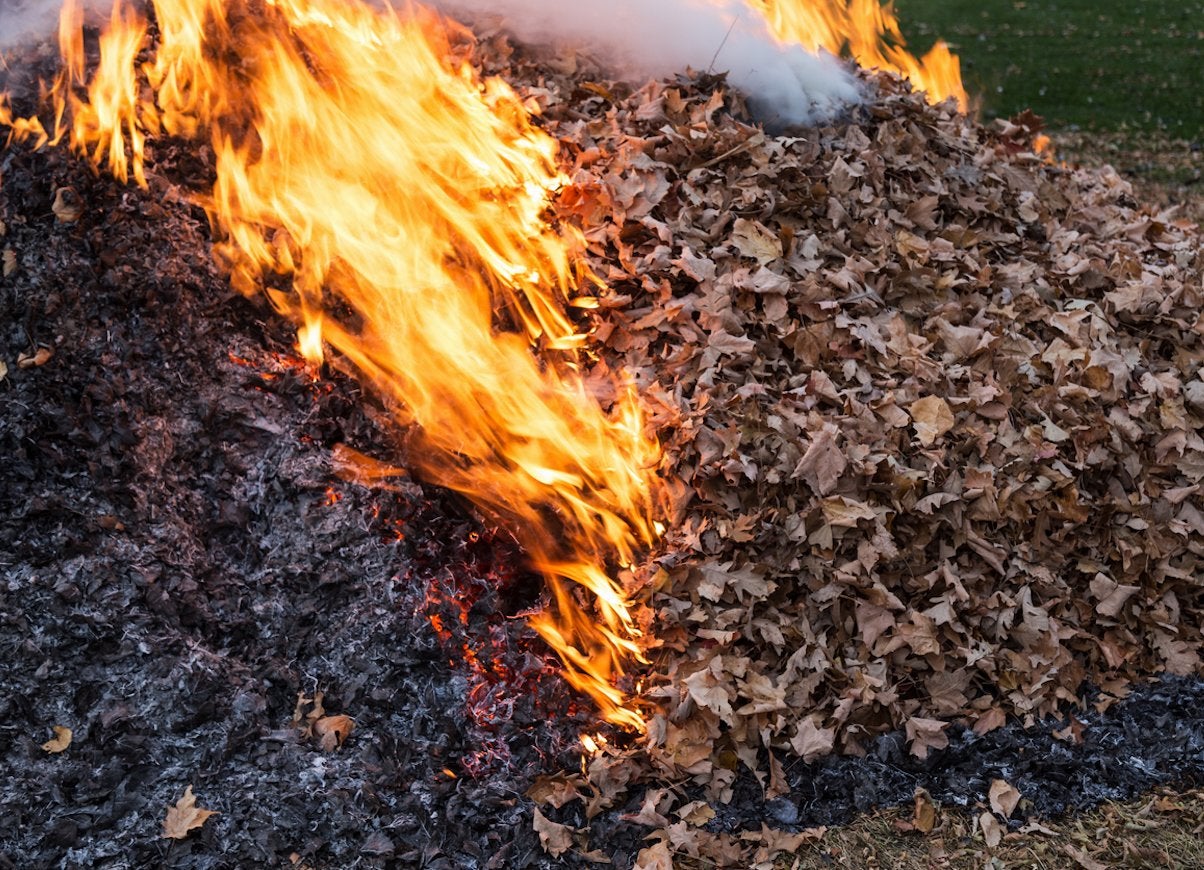
Some rural communities allow residents to have a burn barrel in which they can burn nonhazardous household trash, while other communities may restrict burning to a fire pit. If any type of burning is permitted, keep in mind that during hot, dry weather, a burn ban may be issued, which means you cannot burn anything outdoors until the ban is lifted. Illegal burning is an obvious infraction that’s likely to get you reported by your neighbors.
Related: 10 Things Your Local Fire Department Wishes You Knew
Leaving Your House Vacant
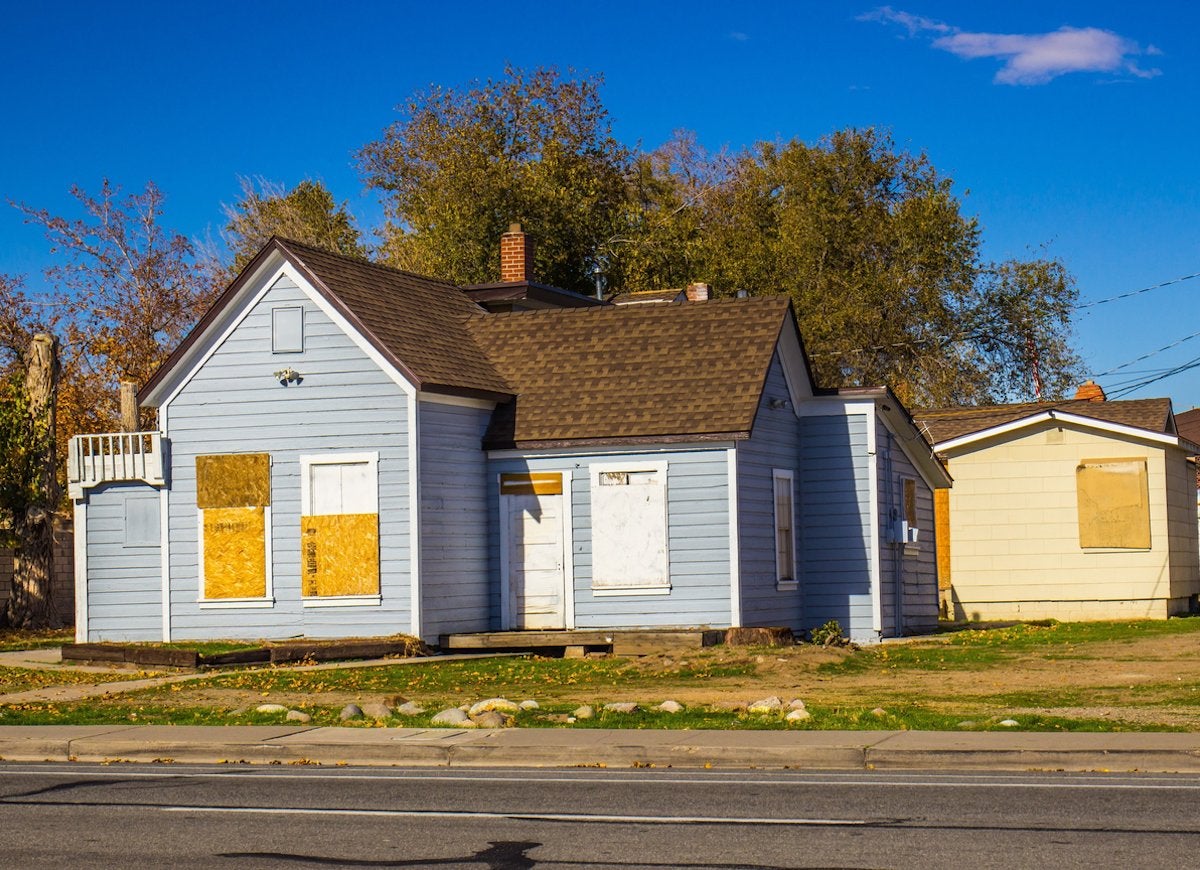
While you’re free to go on vacation without worry, if you move out of your house and no one’s living in it, you may be in violation of your community’s vacant property ordinance. These ordinances require homeowners to register vacant homes with the city and provide their contact information. You may also be required to submit a plan detailing how you intend to have the yard maintained. Because vacant homes can attract burglars and vandals, neighbors are understandably wary and may be quick to report.
Encroaching on a Neighboring Yard
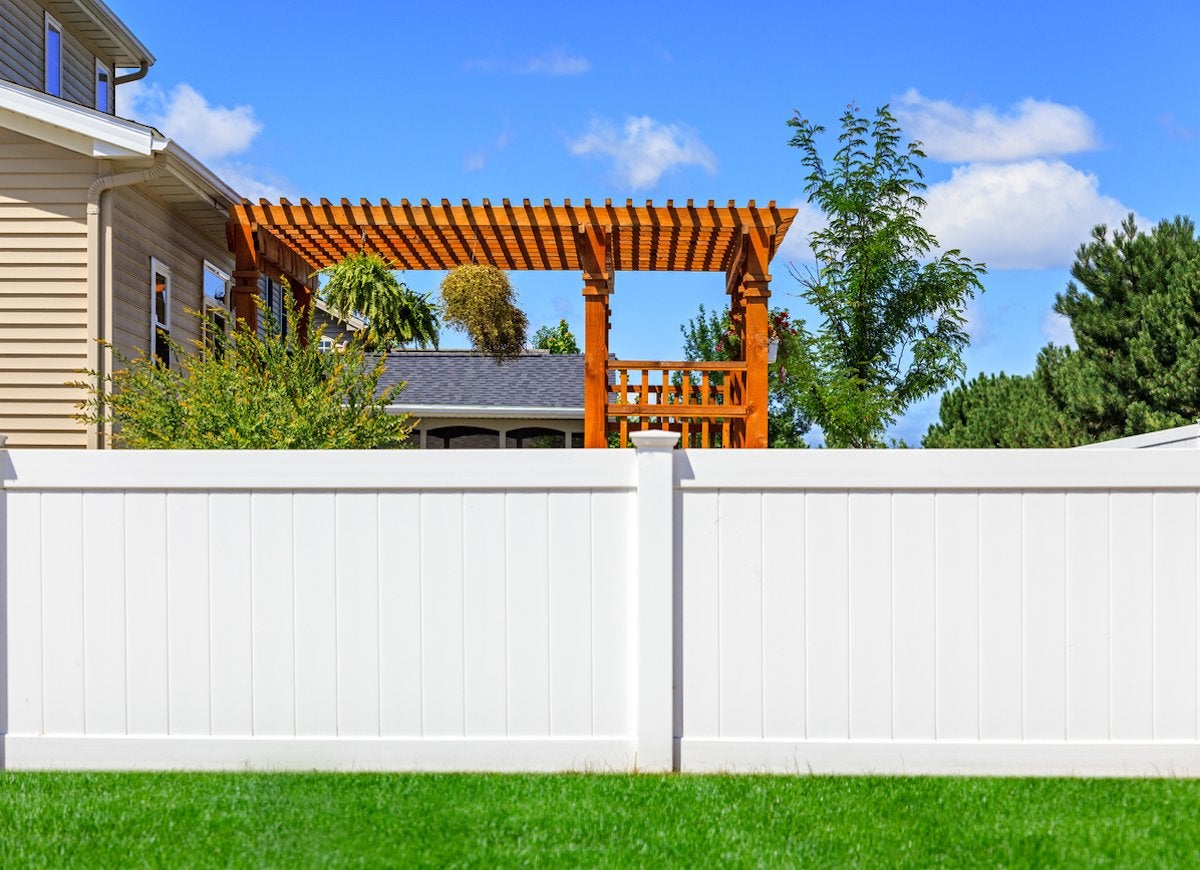
Homeowners are touchy about their property lines, so if you build a fence that extends even a few inches onto your neighbor’s property, you may be forced to remove it. The same goes for unruly bushes that spread onto your neighbor’s yard. Before planting a natural fence or building a solid one, call your local zoning authority, which can send someone out to locate your property pins. If necessary, hire a surveyor. That way, you’ll know exactly where your yard ends and your neighbor’s yard begins.
Outside Storage
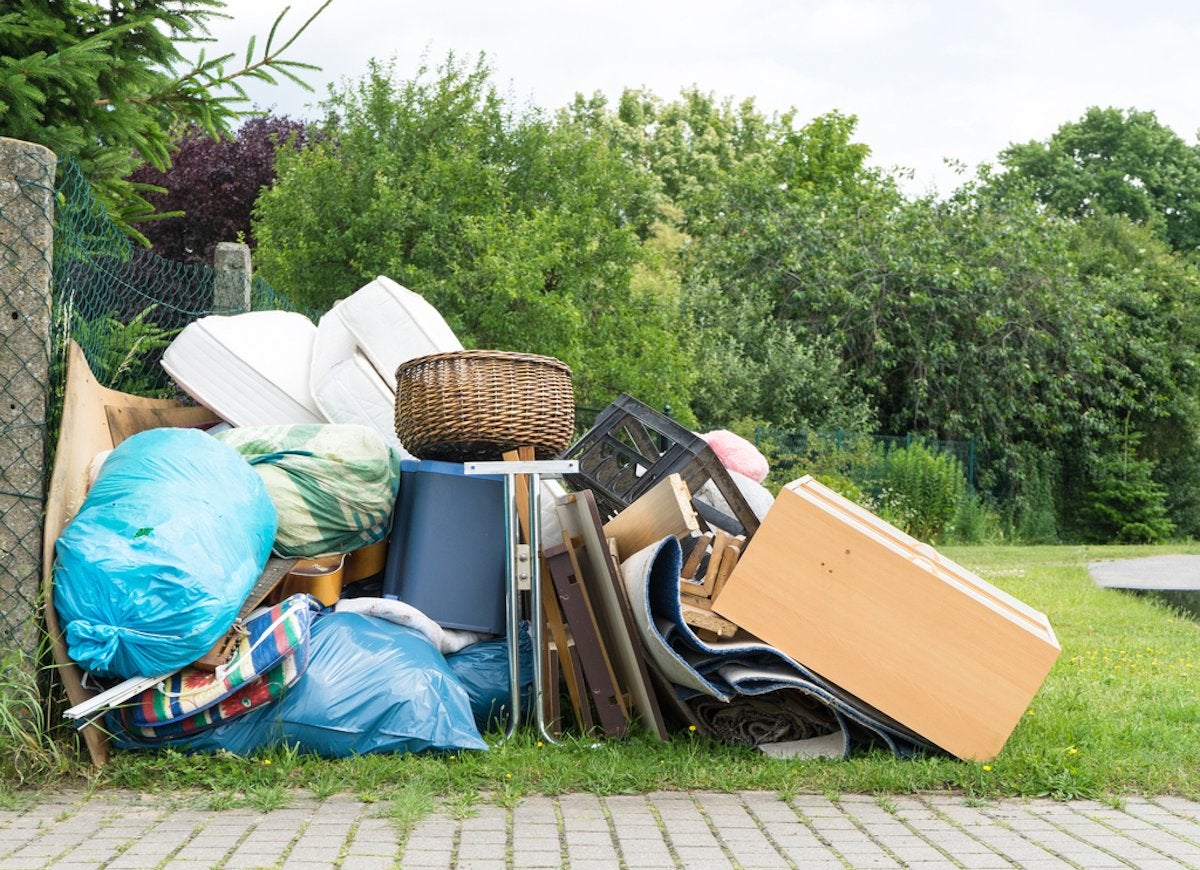
Many communities permit homeowners to leave yard ornaments, lawn furniture, stacked wood, planters, and grills outdoors but prohibit storing other items in the yard or driveway. Keeping storage boxes, shelving, cabinets, or containers of trash in full view on a driveway or porch, or in the front yard, is often prohibited. If your yard becomes a cluttered eyesore, don’t be surprised when the neighbors call and complain. You may receive a warning, or you may receive a fine, but either way, you’ll have to clean it up.
Related: The 10 Best Sheds for Your Backyard
Neighborly Love

Good old kindness and consideration goes a long way in neighbor relations.

